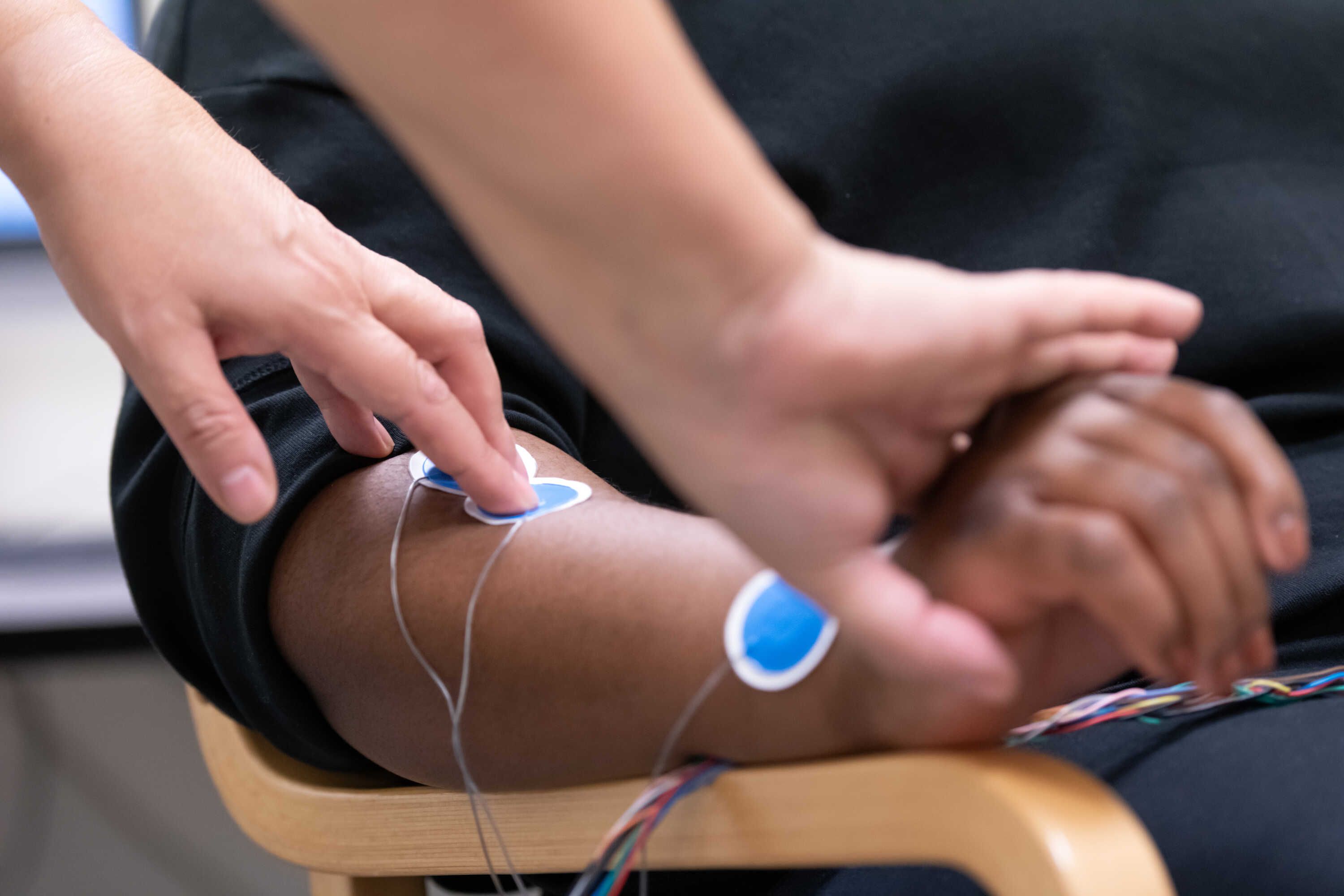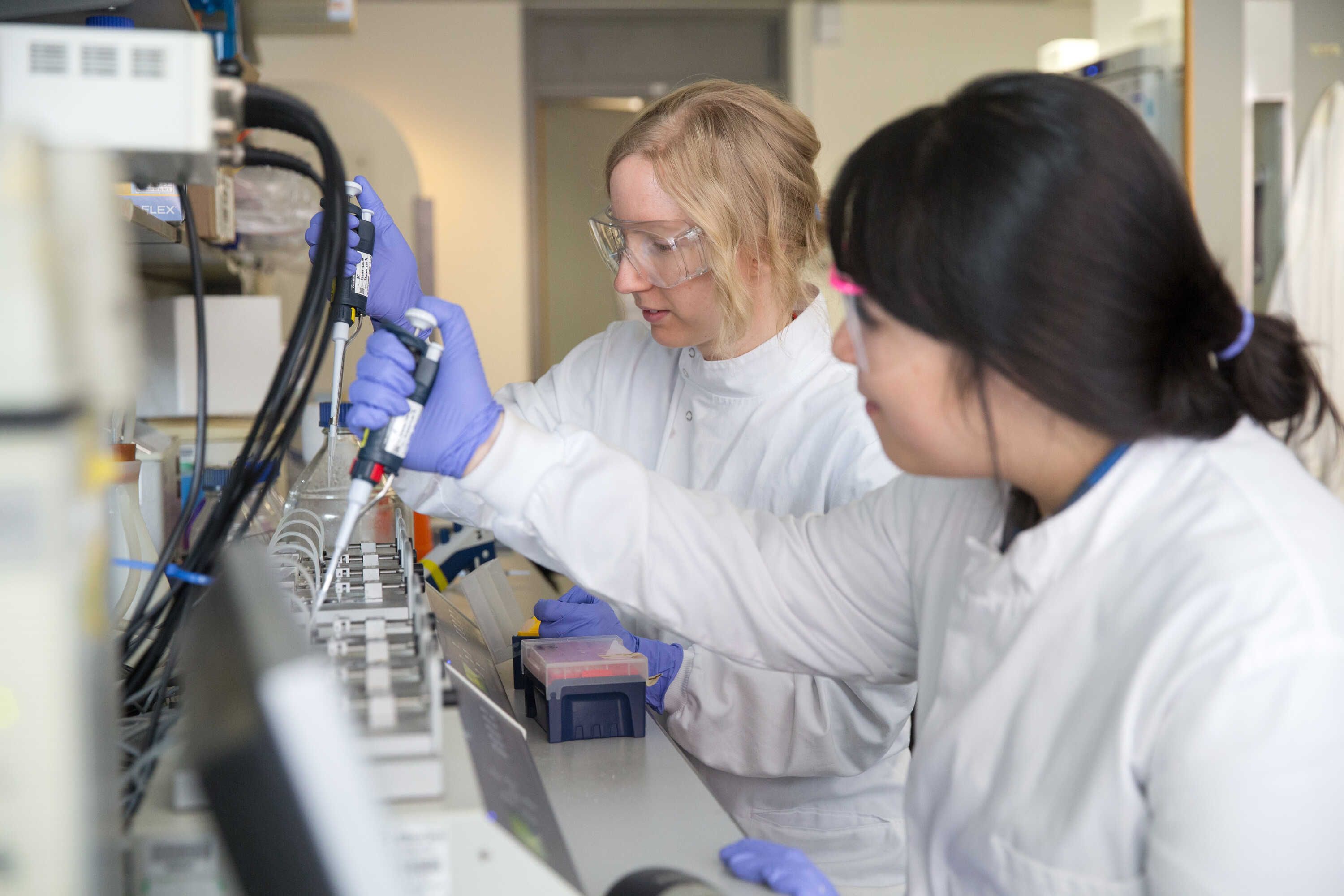
Cancer Informatics
Receive world-class training in research at the interface of computational and clinical translational science.
Receive world-class training in research at the interface of computational and clinical translational science
Specialise in informatics and data handling to gain new insights into molecular biology
Immerse yourself in a multidisciplinary research environment on two extended projects
Course key facts
-
Qualification
-
MRes
-
-
Duration
1 year
-
Start date
October 2023
-
Study mode
Full-time
-
Fees
£15,800 Home
£40,800 Overseas
-
Delivered by
-
Location
-
Hammersmith Campus, London
-
Course overview
Receive world-class training in research at the interface of computational and clinical translational science on this Master's course.
With an emphasis on the field of informatics, this course embraces cutting-edge developments in the field of cancer research.
Informatics covers the handling and analysis of data. This programme will equip you with the skills required to leverage large biological and clinical datasets to address novel hypotheses and gain new insights into molecular biology.
You'll explore technologically advanced approaches currently being applied, in a teaching programme that comprises both theoretical and practical elements.
Through demonstrations and workshops, you'll be trained in fundamental computational and bioinformatics techniques, ethics, and science communications.
You'll also apply your skills on two research placements, both lasting approximately 20 weeks each.
This is one of two Cancer Biology streams available at Imperial. You may alternatively wish to consider our core Cancer Biology stream.
Structure
This page is updated regularly to reflect the latest version of the curriculum. However, this information is subject to change.
Find out more about potential course changes.
You’ll take all of these core modules.
Core modules
Learn the cellular and molecular basis of cancer processes and hallmarks, together with clinical and pathological aspects of carcinogenesis and treatment.
Advance your skills in fundamental computational and bioinformatic techniques and explore cutting-edge methodologies in a range of informatics areas.
Conduct a 20-week research project, with wet-lab/dry lab projects undertaken primarily at Imperial College London.
Some opportunities will be available for projects at other organisations such as the Bart’s Cancer Institute, the Francis Crick Institute, GlaxoSmithKline, the Institute of Cancer Research, and the Medical Research Council.
You'll present your work through a research report, oral presentation, Viva defence, and academic poster.
The second project will see you conduct original research. This encompasses data analysis, literature mining, and bench work where possible.
Some opportunities will be available for projects at other organisations such as the Bart’s Cancer Institute, the Francis Crick Institute, GlaxoSmithKline, the Institute of Cancer Research, and the Medical Research Council.
You'll be expected to produce a persuasive and logical experimental study proposal based upon contemporary research.
Your work will be assessed by a thesis, Viva defence, and mock grant application.
Teaching and assessment
Teaching and learning methods
-
Lectures
-
Technical workshops
-
Tutorials
-
Seminars
-
Student-led presentations
Balance of assessment
Key
- Modules
- Projects
- 10% Modules
- 90% Projects
Assessment methods
-
Cancer Informatics assignment
-
Mock grant proposal
-
Poster presentation
-
Projects (thesis and oral assessment)
Entry requirements
We consider all applicants on an individual basis, welcoming students from all over the world.
How to apply
Apply online
You can submit one application form per year of entry. You can choose up to two courses.
We consider applications to this course in four batches. Applications received before each deadline are considered in those batches and applicants are then required to attend an online interview. The application deadlines are:
- 11 December 2022: online interviews 23-27 January 2023
- 31 January 2023: online interviews 20-24 February 2023
- 24 March 2023: online interviews 17-21 April 2023
- 31 May 2023: online interviews 19-23 June 2023
If you wish for your application to be considered in a particular batch, please apply at least five working days before the deadline to ensure your application is included in that round of decision making.
Competition for places on this programme are high with 70% of all offers being made following the January submission deadline. Whilst we do continue to make offers March to June, less than 5% of our remaining offers are made following the May submission deadline.
If you are applying for a taught Master’s course, you will need to pay an application fee before submitting your application.
The fee applies per application and not per course:
- £80 for all taught Master's applications excluding those to the Imperial College Business School
- £100 for all MSc applications to the Imperial College Business School
- £150 for MBA applications to the Imperial College Business School
There is no application fee for MRes courses, Postgraduate Certificates, Postgraduate Diplomas or research courses, such as PhDs and EngDs.
If you are facing financial hardship and are unable to pay the application fee, we encourage you to apply for our application fee waiver.
Find out more about how to apply for a Master's course, including references and personal statements.
An ATAS certificate is not required for students applying for this course.
Tuition fees
Home fee
2023 entry
£15,800
You should expect and budget for your fees to increase each year.
Your fee is based on the year you enter the College, not your year of study. This means that if you repeat a year or resume your studies after an interruption, your fees will only increase by the amount linked to inflation.
Find out more about our tuition fees payment terms, including how inflationary increases are applied to your tuition fees in subsequent years of study.
Whether you pay the Home or Overseas fee depends on your fee status. This is assessed based on UK Government legislation and includes things like where you live and your nationality or residency status. Find out how we assess your fee status.
If you're a UK national, or EU national with settled or pre-settled status under the EU Settlement Scheme, you may be able to apply for a Postgraduate Master’s Loan from the UK government, if you meet certain criteria.
For 2023-24 entry, the maximum amount is £12,167. The loan is not means-tested and you can choose whether to put it towards your tuition fees or living costs.
Overseas fee
2023 entry
£40,800
You should expect and budget for your fees to increase each year.
Your fee is based on the year you enter the College, not your year of study. This means that if you repeat a year or resume your studies after an interruption, your fees will only increase by the amount linked to inflation.
Find out more about our tuition fees payment terms, including how inflationary increases are applied to your tuition fees in subsequent years of study.
Whether you pay the Home or Overseas fee depends on your fee status. This is assessed based on UK Government legislation and includes things like where you live and your nationality or residency status. Find out how we assess your fee status.
If you're a UK national, or EU national with settled or pre-settled status under the EU Settlement Scheme, you may be able to apply for a Postgraduate Master’s Loan from the UK government, if you meet certain criteria.
For 2023-24 entry, the maximum amount is £12,167. The loan is not means-tested and you can choose whether to put it towards your tuition fees or living costs.
Your future career
Be equipped with transferable skills for a career as a research scientist, research assistant or scientific officer.
Specialise in fundamental computational and bioinformatics techniques, ethics, and science communication.
Those who wish to gain a deeper understanding of cancer research will also benefit from this programme.
With specialised knowledge, you'll be highly sought after in a range of sectors.
This can include areas of journalism, patent and intellectual property roles, and financial institutions.
Further links
Contact the department
Course Director: Dr James Flanagan
Stream Director: Dr Kiril Veselkov
Visit the Department of Surgery and Cancer website

Register your interest
Stay up to date on news, events, scholarship opportunities and information related to this course.
Register your interest


Terms and conditions
There are some important pieces of information you should be aware of when applying to Imperial. These include key information about your tuition fees, funding, visas, accommodation and more.
You can find further information about your course, including degree classifications, regulations, progression and awards in the programme specification for your course.
Programme specifications

